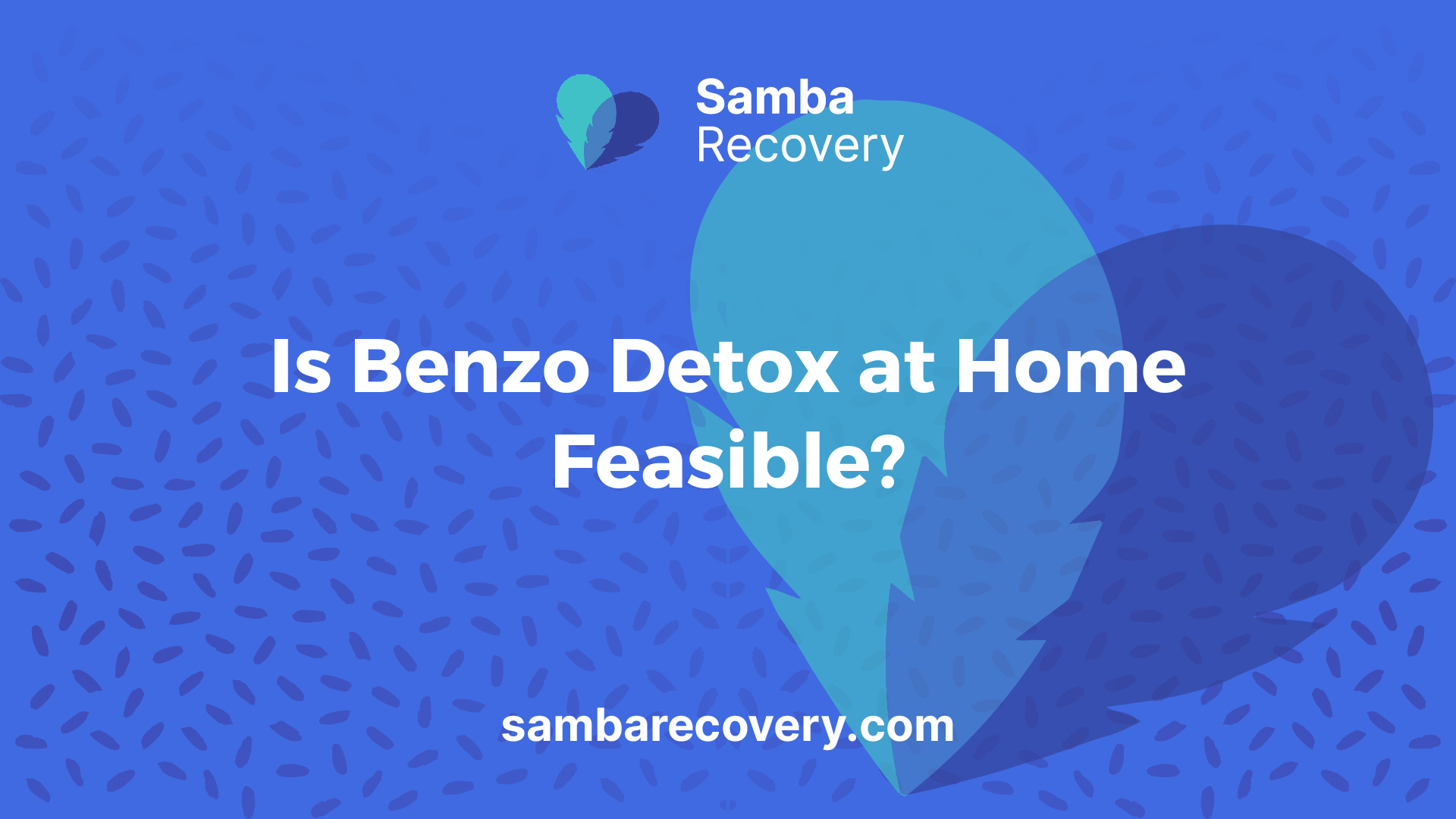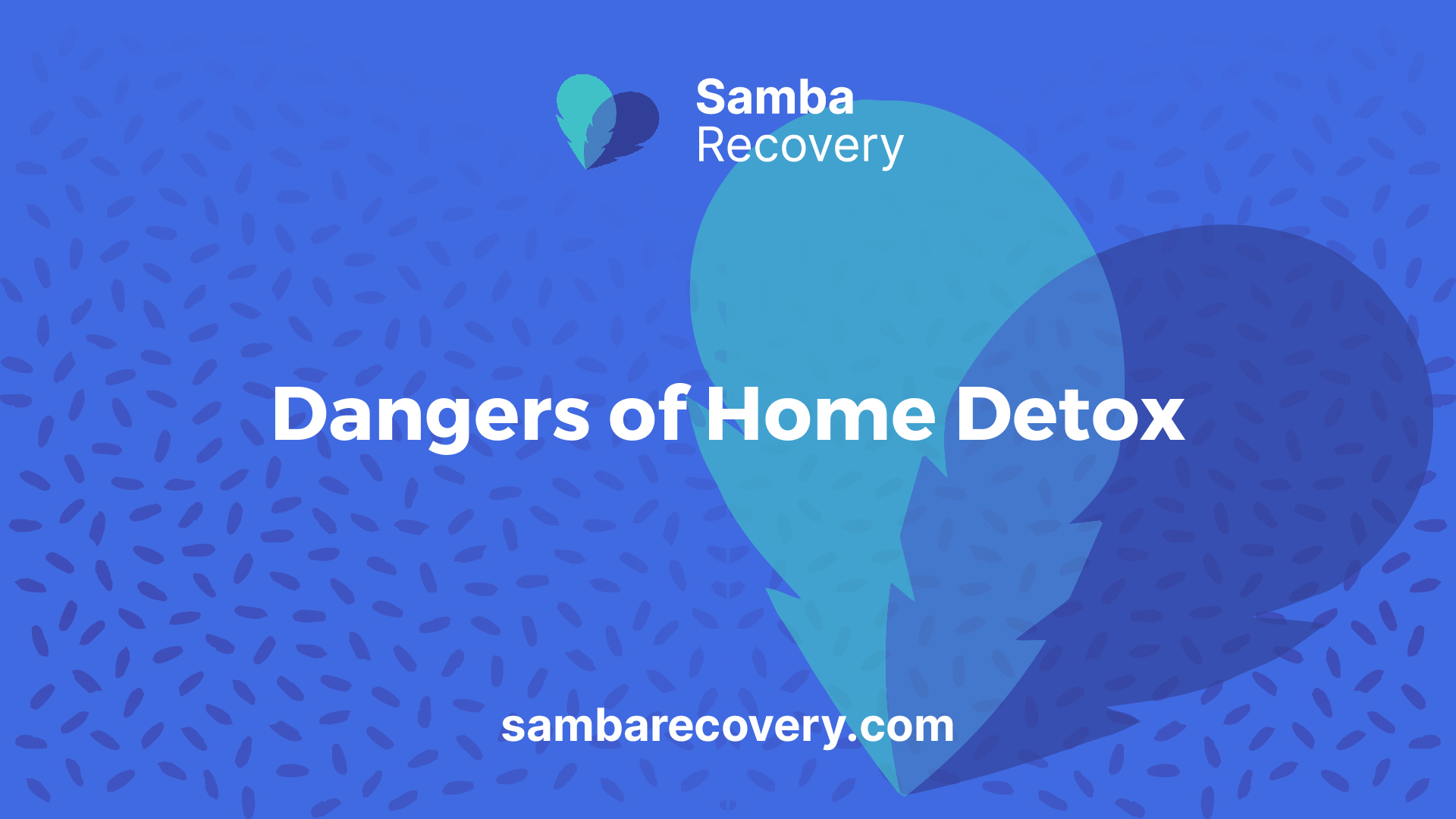
Understanding Benzo Withdrawal
Understanding the withdrawal process from benzodiazepines (benzos) is crucial for individuals considering this recovery path. The symptoms and factors influencing the effectiveness of detox can vary widely among different individuals.
Symptoms of Benzo Withdrawal
The symptoms experienced during benzo withdrawal can be quite intense and may include:
Common SymptomsDescriptionAnxietyHeightened feelings of worry or fearDepressionPersistent low mood or feelings of hopelessnessInsomniaDifficulty falling or staying asleepMuscle AchesGeneralized discomfort and pain in musclesSweatingExcessive perspiration, often at nightTremorsInvoluntary muscle shaking or jitteriness
Symptoms can begin within 24 hours after the last dose and may last from several days to several months. In about 10 percent of cases, individuals may still experience withdrawal symptoms years later [1]. The intensity and duration of symptoms largely depend on individual factors such as body composition, health status, and history of use [2].
Factors Influencing Withdrawal
Many variables influence the complexity of benzo withdrawal. Key factors include:
FactorInfluenceFamily History of DependencyA family history may increase the risk of difficult withdrawalDuration of UseLonger use can lead to more severe symptomsDosageHigher dosages may intensify withdrawal severityMethod of IngestionHow the drug was taken can influence the withdrawal experience
These factors play a significant role in determining how an individual experiences withdrawal symptoms and their recovery journey. Physiological dependence can be accompanied by a range of symptoms including irritability, panic attacks, and in severe cases, seizures. Understanding these elements can help those considering detox navigate their options and seek the necessary support. For information on safe withdrawal practices, visit the proper detox definition.
Management of Benzo Withdrawal

Managing withdrawal from benzodiazepines is a crucial aspect of the detox process. Effective management can alleviate symptoms and promote a smoother transition away from the medication.
Professional Supervision Importance
Professional supervision is highly recommended during benzodiazepine withdrawal. Many individuals benefit from a benzo withdrawal management program, which involves a combination of medical treatments, therapeutic activities, and peer support to help navigate the challenges of withdrawal [2]. This structured environment not only provides safety but also teaches new coping mechanisms to reduce the likelihood of relapse.
The withdrawal process can induce severe symptoms, some of which can lead to serious complications such as seizures and psychotic reactions, particularly among those who were on high doses [3]. Professional supervision ensures that individuals receive appropriate care, monitoring, and intervention where necessary.
Natural Remedies for Withdrawal
While professional care is essential, some individuals may also explore natural remedies to ease withdrawal symptoms. These remedies can vary in effectiveness from person to person, often requiring individuals to experiment to find what works best for them. Common natural remedies include:
Natural RemedyPurposeHerbal supplementsMay help alleviate anxiety and promote calmnessNutritional supportEnsures adequate intake of essential nutrientsRelaxation techniquesCan reduce stress and enhance mental well-being
These methods should be used in conjunction with professional support rather than as a substitute. It is crucial to discuss any natural remedies with healthcare providers to ensure they do not interfere with any ongoing medical treatments.
Gradual Reduction of Dosage
Gradual reduction of benzodiazepine dosage, often referred to as tapering, is a common method for managing withdrawal. Abruptly stopping the medication can trigger intense withdrawal symptoms, making a gradual approach safer and more tolerable.
A recommended tapering schedule usually involves tracking the current dosage and progressively reducing it over a set time. The precise schedule should be tailored to each individual based on factors such as their dependence level, the type of benzo used, and any underlying health conditions.
Dosage Reduction PlanDurationReduce 10% every week2-4 weeksPersonalized taperingVaries based on individual needs
Implementing a gradual reduction under medical supervision can mitigate withdrawal symptoms and improve the chances of successful detoxification. For additional information about the detox process, visit our page on the proper detox definition.
Dangers of Home Detox

Detoxing from benzodiazepines at home poses several risks and safety concerns. Individuals looking to eliminate their dependence on benzodiazepines must be aware of these dangers to make informed decisions about their recovery process.
Risks of Home Withdrawal
Attempting to detox from benzodiazepines without medical supervision can lead to severe health risks. Withdrawal symptoms can range from mild anxiety to life-threatening seizures, especially for those with a history of seizures or prolonged use of high doses [4]. Common withdrawal symptoms may include:
SymptomOnset TimeDurationRebound anxiety1-4 daysFew daysInsomnia1-4 daysDays to monthsSeizuresVariesImmediate risk
Withdrawal typically begins within a few days after cessation or dosage reduction. However, symptoms and their severity can differ based on the specific benzodiazepine, the duration of use, and personal health factors [5].
Due to the unpredictable nature of withdrawal symptoms, self-detoxification can lead to increased anxiety, insomnia, and other complications, particularly without professional support [1].
Safety Concerns
Safety is a primary concern when considering a home detox plan. Without professional guidance, individuals may either taper off too quickly or too slowly, leading to exacerbated symptoms. The lack of professional medical support also means there is no immediate intervention available in case of severe complications, such as seizures or psychological distress.
Medical professionals can provide essential services during detox, such as administering medication to mitigate withdrawal symptoms, preventing seizures, and monitoring the individual’s overall physical and mental health [6].
Attempting to detox at home increases the risk of relapse due to the intense discomfort of withdrawal symptoms, stressing the necessity of structured environments where individuals can receive treatment and coping strategies. For comprehensive information on detoxification, visit the proper detox definition.
Benzo Withdrawal Duration
Understanding the duration of benzodiazepine (benzo) withdrawal is crucial for individuals considering detoxification, as it can significantly impact the recovery process. Two distinct phases of withdrawal have been identified: acute withdrawal and protracted withdrawal.
Acute vs. Protracted Withdrawal
Acute withdrawal symptoms from benzodiazepines can begin within 24 hours of the last dose. The intensity and duration of these symptoms can vary considerably among individuals. Some may experience withdrawal symptoms for several days, while others might endure discomfort for months. Notably, about 10 percent of individuals can still be experiencing symptoms even years after discontinuing benzo use [1].
Withdrawal PhaseDurationSymptomsAcute WithdrawalDays to weeksAnxiety, insomnia, restlessness, irritability, nauseaProtracted WithdrawalMonths to yearsPersistent anxiety, fatigue, cognitive difficulties
Impact of Benzo Type and Dosage
The specific type of benzodiazepine used, along with the dosage and duration of use, plays a significant role in determining withdrawal experiences. Each benzodiazepine has its own half-life, or the time it takes for half of the drug to exit the bloodstream, leading to differing withdrawal timelines. For example, shorter-acting benzodiazepines may lead to a quicker onset of withdrawal symptoms, while longer-acting varieties may result in a more gradual withdrawal process.
Higher doses and continuous use are predictors of more severe withdrawal symptoms. Individuals with a history of seizures or those who have used high doses for an extended period may be at increased risk for complications, including seizures during the withdrawal process. It is essential to address these risks with appropriate medical supervision [4].
Additionally, the timing of dose reductions should be carefully monitored, with recommendations suggesting at least one-week intervals between reductions to ensure comfort and safety during the detoxification process [7]. For those curious about detoxing from benzos at home, understanding these timelines and risks is essential for making informed decisions regarding treatment options.
Support During Detox
Detoxing from benzodiazepines can be a challenging process, highlighting the importance of support systems during this period. Various therapies, alternative treatments, and aftercare programs can significantly aid individuals in managing their withdrawal symptoms and maintaining recovery.
Therapies and Alternative Treatments
Many individuals benefit from a combination of traditional therapies and holistic approaches during benzodiazepine detox. Some effective therapies include:
Therapy TypeDescriptionCognitive Behavioral Therapy (CBT)A structured program that helps individuals recognize and modify negative thought patterns and behaviors associated with substance use.Group TherapyProvides support from peers who have similar experiences, fostering a sense of community and shared understanding.Relaxation TechniquesMethods such as deep breathing, meditation, and yoga can help manage anxiety and reduce stress, which are common during withdrawal.
Natural remedies may also play a supportive role. These can include herbal supplements, vitamins, and lifestyle changes, although their effects may vary among individuals. Finding the right combination of therapies tailored to individual needs can lead to more effective coping strategies and a smoother detox experience.
Importance of Aftercare Programs
Following detox, aftercare programs are crucial for maintaining long-term sobriety and preventing relapse. These programs often provide continued support and resources needed to navigate recovery. Key components of effective aftercare can include:
Aftercare ComponentDescriptionOutpatient CounselingOngoing therapy sessions to reinforce coping strategies and address underlying issues related to substance use.Peer Support GroupsRegular meetings with others in recovery, allowing for shared experiences, encouragement, and accountability.Relapse Prevention EducationSessions designed to identify triggers and develop strategies to avoid future substance use.
A benzo withdrawal management program guided by medical and therapeutic professionals can also offer a combination of medical treatments, therapies, and peer support to assist patients in learning new coping skills and avoiding relapse, providing a safe environment for the withdrawal process [2].
Ensuring that the necessary support systems are in place can significantly aid individuals seeking to understand can you detox from benzos at home? They can find comfort in knowing there are structured paths for recovery and strategies for coping with challenges along the way.
Seeking Professional Help
Detoxing from benzodiazepines (benzos) raises the question, “can you detox from benzos at home?” The answer underscores the importance of professional supervision during this process. Attempting detox at home comes with numerous risks and complications.
Benefits of Medical Supervision
Engaging in a benzo withdrawal management program guided by medical and therapeutic professionals is crucial. Such programs offer a combination of medical treatments, therapies, and peer support, helping individuals learn new coping skills and avoid relapse. A supportive environment during the withdrawal process not only enhances safety but also provides the comfort needed for effective recovery.
BenefitDescriptionSafetyProfessional supervision significantly reduces the risk of life-threatening withdrawal symptoms.ComfortMedical facilities can provide medication to manage symptoms, ensuring a more tolerable experience.SupportAccess to therapists and support groups fosters a community healing experience.
Research highlights that supervised detox is the best way to start recovery from benzo addiction. Supervision by medical and mental health professionals aids in reducing the intensity and duration of withdrawal symptoms.
Counseling for Coping Strategies
Counseling during detox is another essential component of a comprehensive recovery program. Counseling offers coping strategies that help individuals manage cravings and triggers effectively. Understanding and addressing the psychological aspects of addiction can facilitate a smoother transition into sobriety.
Therapies may include cognitive-behavioral techniques, mindfulness practices, and stress management training. These approaches enable individuals to develop healthier coping mechanisms and resilience in the face of challenges.
Receiving counseling support not only aids in emotional stability but also significantly reduces the chances of relapse. It empowers individuals with the necessary tools to navigate the complexities of recovery effectively. For more information on the essential elements of detox, visit the proper detox definition.
Attempting to detox from benzos without professional guidance is not recommended due to the potential for severe discomfort and life-threatening symptoms. Engaging with experts ensures a safer, more effective recovery journey.
References
[2]:
[3]:
[4]:
[5]:
[6]:
[7]:






